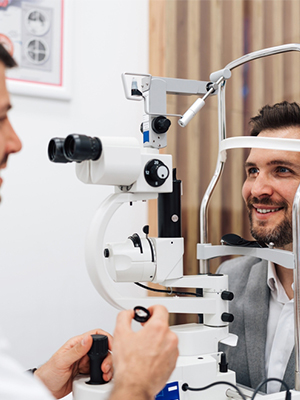Ophthalmology at Eye Hospitals in Guntur is a specialized branch of medicine that focuses on the diagnosis, treatment, and management of eye disorders and vision problems. This field encompasses a wide range of conditions, from common issues like refractive errors (nearsightedness, farsightedness) to complex diseases such as cataracts, glaucoma, and age-related macular degeneration. Ophthalmologist in Guntur are medical doctors who undergo extensive training, including medical school and residency, allowing them to perform eye surgeries, prescribe medications, and provide overall eye care. They utilize advanced diagnostic tools and techniques to identify conditions, including visual field tests, optical coherence tomography, and fundus photography. In addition to clinical practice, ophthalmologists may also engage in research and education to advance the understanding of eye health. As one of the fastest-evolving fields in medicine, ophthalmology continually integrates new technologies and treatments, improving outcomes and preserving sight for millions of individuals worldwide.
Some of the common eye disorders:

- Refractive Errors: Includes myopia (nearsightedness), hyperopia (farsightedness), and astigmatism, often corrected with glasses or contact lenses after getting checked by Best eye doctors in Guntur .
- Cataracts: Clouding of the eye's natural lens, leading to blurred vision; common in older adults and may require surgical removal.
- Glaucoma: A group of eye conditions characterized by increased intraocular pressure, potentially damaging the optic nerve and leading to vision loss; can be managed with medications or surgery.
- Age-related Macular Degeneration (AMD): A leading cause of vision loss in older adults, affecting the macula; can be "dry" (more common) or "wet" (more severe) forms.
- Diabetic Retinopathy: A complication of diabetes resulting in damage to the retina's blood vessels, leading to vision impairment; regular screenings and management of diabetes are crucial.
- Conjunctivitis: Inflammation of the conjunctiva, commonly known as pink eye; can be viral, bacterial, or allergic, presenting with redness and discharge.
- Dry Eye Syndrome: A condition at Best eye hospitals in Guntur where the eyes do not produce enough tears or the right quality of tears, leading to irritation and discomfort; management may include artificial tears and lifestyle changes.
Symptoms of common eye disorders:
- Visual Disturbances: Blurred vision, double vision, or sudden vision loss can indicate serious conditions like retinal detachment or cataracts.
- Eye Pain: Persistent or severe pain can be a sign of glaucoma, corneal abrasions, or uveitis as per Eye doctor in Guntur .
- Redness: Conjunctivitis (pink eye), glaucoma, or scleritis often present with redness in the eye.
- Itching or Burning: Allergies, dry eye syndrome, or infection can lead to itching or burning sensations.
- Tearing or Dryness: Excessive tearing may indicate infection or blockages, while dryness could suggest conditions like Sjögren's syndrome or environmental irritants.
- Sensitivity to Light: Photophobia can be associated with migraines, uveitis, or corneal conditions.
- Swelling of Eyelids: Allergies, infections, or other inflammatory conditions may cause eyelid swelling.
- Floaters and Flashes: Sudden onset of floaters or flashes may signal retinal tears or detachment.
- Changes in Color Vision: Difficulty distinguishing colors can indicate conditions affecting the optic nerve.
- Difficulty with Night Vision: Issues with seeing in low light may suggest cataracts or retinitis pigmentosa.
Maintaining good eye health is essential as per Eye specialist in Guntur for overall well-being and can be achieved through several positive habits. First, practice the 20-20-20 rule: every 20 minutes, look at something 20 feet away for at least 20 seconds to reduce digital eye strain. Ensure proper lighting while reading or using screens to minimize glare. Incorporate a balanced diet rich in vitamins A, C, and E, along with omega-3 fatty acids, to support eye health; foods such as carrots, leafy greens, and fish are beneficial. Staying hydrated helps prevent dryness, so drink plenty of water throughout the day. Additionally, protect your eyes from UV rays by wearing sunglasses outdoors. Regular comprehensive eye exams at Shiva Hospitals can catch issues early, allowing for proactive treatment. Lastly, limit screen time and take regular breaks to give your eyes a rest, reducing the risk of long-term damage and maintaining optimal vision.

